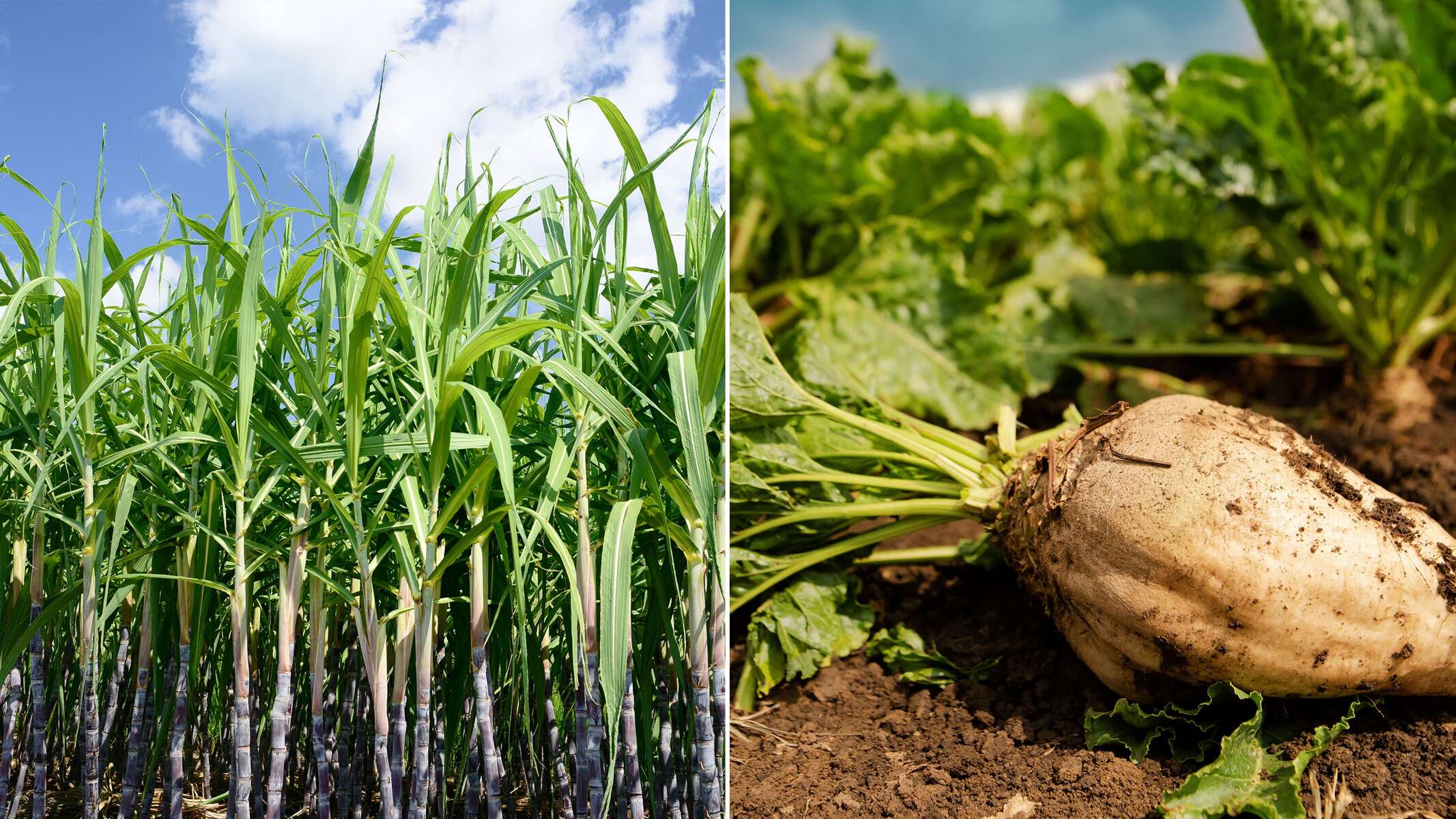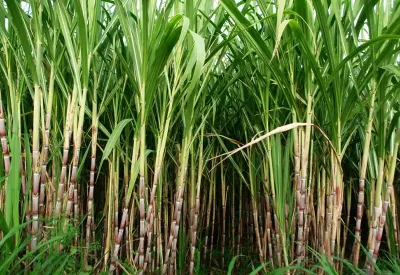The Great Debate: Sugar Beet Vs Sugar Cane - Which Is the Superior Selection for Sugar?
The argument over sugar beet versus sugar cane as the favored sweetener entails a number of important elements. Each offers unique benefits and challenges regarding production, flavor, and health implications. While sugar beet might interest those focusing on sustainability, sugar cane has its very own social and culinary significance. As consumers end up being much more aware of their choices, the inquiry continues to be: which sweetener absolutely sticks out in today's market?
The Origins of Sugar Beet and Sugar Cane
Although sugar cane has actually been cultivated for countless years, largely in exotic regions, sugar beet became a significant choice in cooler environments during the 18th century. Sugar cane, indigenous to Southeast Asia, was initial tamed around 8000 BCE and spread worldwide through trade and expedition. Its high sucrose material made it a valuable plant, resulting in comprehensive haciendas in areas like the Caribbean and Brazil.
On the other hand, sugar beet was very first cultivated in the Mediterranean around the 18th century, particularly gaining grip in Europe as a feedback to sugar cane lacks. The plant thrives in temperate climates, making it suitable for areas with chillier weather condition. The exploration that sugar could be removed from beet origins reinvented sugar production, specifically throughout the Napoleonic Battles when trade restrictions minimal cane sugar accessibility. The increase of sugar beet cultivation noted a zero hour in the history of sugar, giving a regional source for lots of countries.
Manufacturing Processes: From Field to Sweetener
The production processes of sugar beet and sugar cane expose considerable differences in growing strategies, harvesting approaches, and refinement phases. Comprehending these subtleties is important for appreciating just how each plant adds to the general sugar market. This comparison highlights the distinct qualities and difficulties associated with both resources of sweet taste.

Growing Techniques Contrast
Cultivation strategies for sugar beet and sugar cane disclose unique methods that affect their manufacturing procedures, from field prep work to last sweetener extraction. Sugar beet growing typically involves raking and traumatic to create a great seedbed, complied with by seeding in rows to facilitate development. This plant gain from cooler environments and is often planted in spring. In contrast, sugar cane is usually planted in furrows with pre-sprouted cane pieces, needing a cozy, tropical climate for suitable growth. Cane fields are typically set out to manage water effectively, given its demand for considerable irrigation. Both crops are handled with details fertilizing and parasite control methods tailored to their growth settings, impacting return quality and performance in sweetener extraction.

Collecting Methods Described
Efficient harvesting approaches for sugar beet and sugar cane play a vital function in assuring maximum return and top quality of the end product. Sugar beet harvesting normally employs mechanical origin farmers, which efficiently root out the beetroots from the dirt and separate them from the vegetation. This method reduces damages to the beets and reduces labor expenses. In comparison, sugar cane harvesting may utilize either manual work or equipment, relying on the area and scale of manufacturing. Mechanical harvesters cut the cane at the base and frequently remove the leaves, optimizing the procedure for larger fields. Both approaches require careful timing to ensure the plants are gathered at peak sweetness, influencing the quality of the final sweetener product.
Refinement Process Differences
While both sugar beet and sugar cane undertake strenuous improvement processes to change their raw types right into usable sweeteners, the methods employed differ significantly. Sugar beet improvement begins with washing and slicing the beetroots into thin cossettes, followed by diffusion, where warm water removes sucrose. The resulting juice is after that detoxified, focused, and crystallized. In contrast, sugar cane handling includes crushing the stalks to remove juice, which is then made clear utilizing lime and warm to remove contaminations. The cane juice is evaporated to create syrup before formation. Eventually, while both procedures intend to produce white sugar, the distinctive techniques highlight the distinct characteristics of each source and their ramifications for taste and purity in the end product.
Nutritional Profiles: What remains in Your Sweetener?
The nutritional accounts of sugar beet and sugar cane existing distinctive distinctions worth taking a look at. This contrast consists of aspects such as calorie content, mineral and vitamin presence, and variants in glycemic index. Comprehending these elements can give understandings right into just how each sugar may influence general health and wellness.
Calorie Web Content Comparison
Comprehending the calorie material of sugar beet and sugar cane is crucial for those mindful of their dietary selections. Both sugar mostly include sucrose, adding a similar caloric value. Usually, sugar beet consists of approximately 387 calories per 100 grams, while sugar cane has about 390 calories per the exact same quantity. The minor distinction in caloric web content might not greatly effect most diet regimens; nevertheless, it is exceptional for those closely monitoring their caloric consumption. Furthermore, both sugar resources give energy yet do not have necessary nutrients, making them primarily resources of empty calories. Individuals looking for much healthier choices may want to take right into account these elements when choosing in between sugar beet and sugar cane as their liked sweetener.
Mineral and Vitamin Web Content
Caloric content gives only a part of the picture when reviewing sugar beet and sugar cane. Both sources of sugar vary noticeably in their mineral and vitamin accounts. Sugar beets are incredibly abundant in essential nutrients, including potassium, magnesium, and iron. They additionally contain percentages of vitamins such as B6 and folate, adding to their dietary worth. On the other hand, sugar cane provides a various set of advantages, consisting of calcium, phosphorus, and traces of B vitamins. While neither alternative is a substantial resource of nutrients contrasted to entire foods, sugar beetroots may have a slight side due to their greater mineral web content. Ultimately, customers seeking dietary advantages from sugar should take into consideration these distinctions in accounts.
Glycemic Index Distinctions
Glycemic index plays an important role in evaluating exactly how different sugar affect blood sugar levels. Sugar beet and sugar cane exhibit significant distinctions in their glycemic responses. Normally, sugar beet has a reduced glycemic index compared to sugar cane, causing best site a slower and steadier surge in blood sugar degrees after consumption. This quality may make sugar beet a better choice for individuals taking care of diabetes mellitus or those looking for to maintain stable energy levels. On the other hand, sugar cane has a tendency to trigger a more quick spike in blood sugar, which might cause quicker power crashes. Comprehending these differences is considerable for consumers intending to make enlightened dietary selections regarding sugar and their influence on total health.
Environmental Influence: Sustainability Factors To Consider
While both sugar beet and sugar cane are essential sources of sugar, their ecological influences and sustainability factors to consider differ markedly. Sugar beets, mainly grown in temperate areas, normally require much less water and can be grown in varied climates. Click This Link They additionally gain from crop rotation practices, which enhance soil health and wellness and minimize the demand for synthetic plant foods. Nonetheless, intensive farming of sugar beetroots can cause soil deficiency and chemical use.
On the other hand, sugar cane flourishes in exotic environments and typically demands substantial water sources for irrigation (Sugar beet vs sugar cane). The monoculture nature of sugar cane farming can exacerbate dirt disintegration and biodiversity loss. Furthermore, the burning of cane fields before harvest launches carbon emissions and adds to air contamination. Both crops encounter challenges pertaining to environment modification, however their varying cultivation techniques profoundly influence their general sustainability accounts. Consequently, the option in between sugar beet and sugar cane includes weighing these environmental influences carefully
Taste and Culinary Uses: Which Sweetener Reigns Supreme?
The choice in between sugar beet and sugar cane expands past environmental considerations to incorporate taste and cooking applications. Sugar beet, usually viewed as having a somewhat different taste profile, tends to be much less pleasant than sugar cane. This refined distinction can affect its use in dishes, specifically in baked goods where a neutral sweetness is desired.
Alternatively, sugar cane is celebrated for its distinctive, rich, and extra complex taste, making it a favored option for beverages and treats - Sugar beet vs sugar cane. Its all-natural molasses material can improve the depth of tastes in different meals
In food preparation, sugar cane's convenience beams with in sauces, glazes, and confections, while sugar beet is typically located in refined foods and sugar like granulated sugar. Eventually, the choice between both sweeteners frequently depends upon individual preference preferences and certain cooking applications, with each my review here offering special advantages in the kitchen area.
Health Ramifications: Sugar Beet Vs Sugar Cane
Both sugar beet and sugar cane have unique wellness ramifications that can affect customer choices. Sugar beet vs sugar cane. Sugar beet is typically pertained to for its higher fiber web content, which can aid digestive health. Additionally, it consists of particular antioxidants that might contribute to general health. On the other hand, sugar cane is rich in nutrients such as calcium, potassium, and magnesium, supplying some mineral advantages
Both sources mostly are composed of sucrose, which can lead to comparable health concerns when consumed excessively, such as excessive weight, diabetes, and heart disease. The handling approaches additionally vary; sugar beet is usually improved more intensively, possibly causing a loss of particular nutrients. Consumers worried regarding additives may favor sugar cane, as it often undergoes less processing. Eventually, comprehending these health and wellness ramifications can lead individuals towards making educated choices regarding their sweetener selections.
Customer Preferences: Trends and Insights
Consumer preferences for sugar have actually advanced substantially over the last few years, influenced by health and wellness patterns, ecological problems, and nutritional choices. Raised recognition of the negative health results associated with extreme sugar usage has actually led lots of customers to look for alternatives. This shift has prompted an expanding interest in all-natural sweeteners, with sugar beet and sugar cane going to the forefront of conversations.
Research study shows that customers are progressively preferring sugar beet due to its perceived environmental benefits, as it is typically expanded closer to processing plants, minimizing transport emissions. Alternatively, sugar cane is usually connected with tropical areas and might lug perceptions of sustainability obstacles.

Often Asked Concerns
Exactly How Do Sugar Beet and Sugar Cane Affect Blood Sugar Level Levels?
Sugar beet and sugar cane both consist of sucrose, which can elevate blood glucose levels. The influence mostly depends upon private metabolic process and usage amounts, but both resources add likewise to blood sugar reactions in most cases.
Which Sweetener Is Much Better for Cooking and Food preparation?
When examining sugar for baking and cooking, one should consider texture, taste, and dampness retention. Sugar beet and sugar cane both offer distinct high qualities, with sugar cane often favored for its richer taste profile in cooking applications.
Can Sugar Beet or Cane Be Used in Vegan Diets?
Both sugar beet and sugar cane can be made use of in vegan diet plans. They are plant-derived sugar, making them ideal for individuals looking for vegan-friendly alternatives without animal products, making certain honest choices in their cooking techniques.
What Are the Historical Usages of Sugar Beet and Cane?
Historically, sugar beet and cane acted as crucial sources of sweetness, with cane cultivated in exotic regions and beet in pleasant zones. Both have been integral to different societies, economic situations, and culinary traditions throughout history.
Are There Any Type Of Alternatives to Sugar Beet and Cane?
Alternatives to sugar beet and cane include agave nectar, honey, maple syrup, and sweetening agents like aspartame and sucralose. These alternatives offer varying tastes and wellness advantages, attracting diverse dietary preferences and limitations.